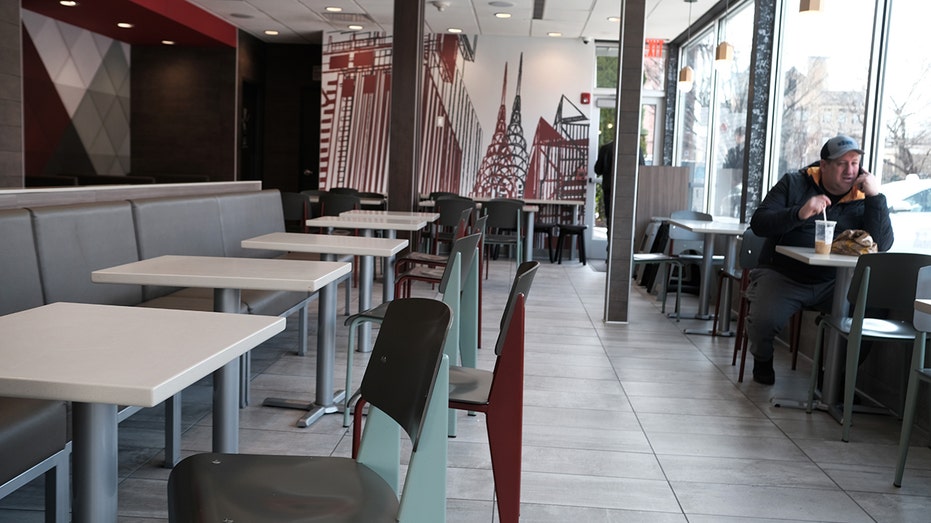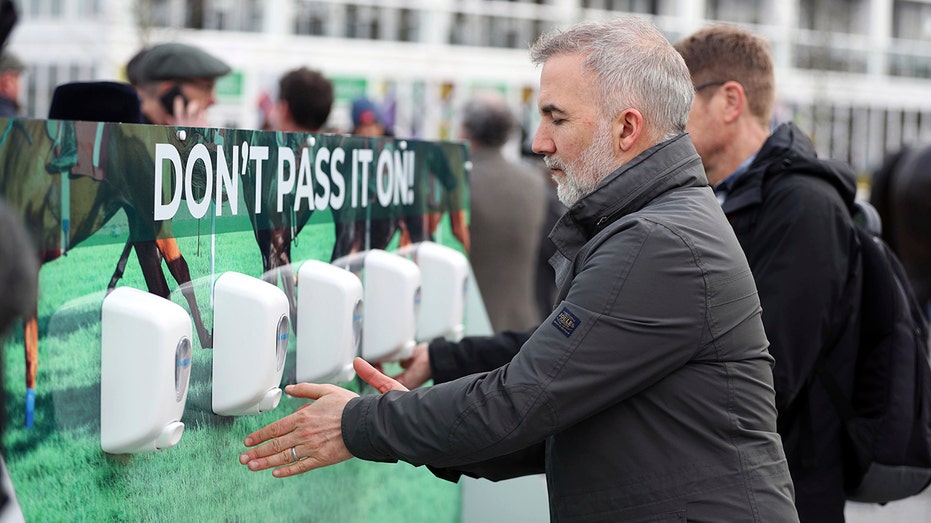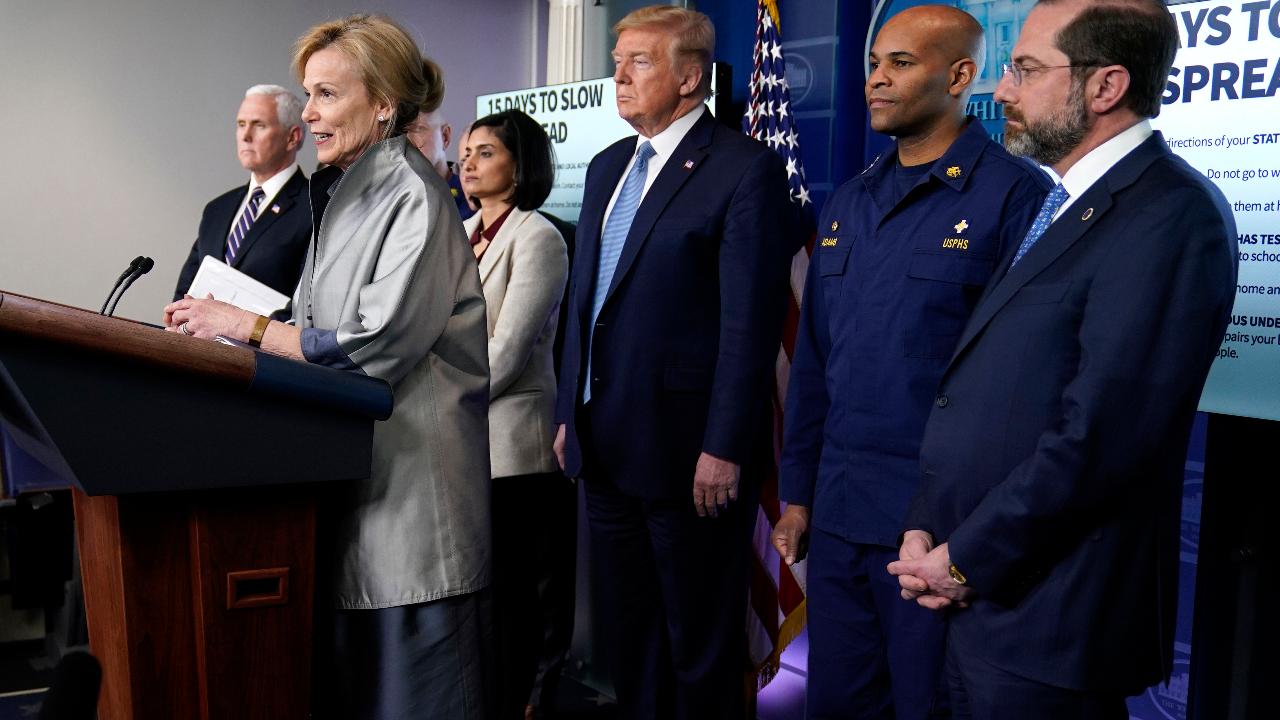Do's and don'ts of coronavirus social distancing
Social distancing is the act of keeping oneself physically apart from other people and out of large, social settings
U.S. health and government officials are calling on the American people to partake in "social distancing" in an effort to contain the spread of the novel coronavirus.
Social distancing is the act of keeping oneself physically apart from other people and out of large, social settings to "flatten" the exponential increase in the number of infected people caused by not limiting human contact, as the world witnessed in Italy.
It's the reason many restaurants and other businesses have closed or mandated seating requirements like keeping barstools six feet apart. The practice is especially important because many people who may have COVID-19 do not immediately show symptoms.

Empty streets, restaurants and cafes make up the business area in the one-mile containment zone on March 11 in New Rochelle, New York. (Photo by Spencer Platt/Getty Images)
Social distancing has become a trending topic on social media over the last week, with people both encouraging the act and complaining about their social-distancing woes as the U.S. and other countries discover what it feels like to physically stay apart from others.
NETFLIX PARTY, GOOGLE CHROME TACKLE CORONAVIRUS WITH SOCIALLY DISTANT MOVIE NIGHT
This visual representation of the effects of social distancing has gone viral:
But as more people take part in this practice, many find themselves unsure of how to handle certain situations. There are still a few "do's and don'ts" to keep in mind when practicing this new social experiment in an effort to contain the virus.
WORKING FROM HOME: DO’S AND DON'TS
Do's:
Try not to put yourself in situations where contact with other people is required or could happen by accident. Many businesses and schools have already closed to help this effort, but people can make their own individual efforts, too. Here are some ways to do that:
- First and foremost, stay home if you can. Try to complete as few shopping trips and other errands as possible.
- Wash your hands before and after going out in public, if you must go out.
- When ordering food, ask the delivery worker to leave your food outside your front door instead of accepting it by hand.
- Consider wearing plastic gloves when using public transport or shopping.
- Use hand sanitizer before and after touching objects that other people touch like ATMs and credit-card machines.
- If you are still operating a public business, clean your place of operation as frequently as possible, making sure employees are washing hands and wearing gloves and consider opening early-morning store hours for senior citizens only.
- Instead of going to the gym, consider getting exercise in an outside setting such as going for a solo run, solo round of golf or outdoor yoga session with others at least six feet apart.
- If you have to get in a close space with other people, like an elevator, turn your head away from others in that space.
- Take advantage of technology like video conference apps and websites, social media and telehealth, including teletherapy.

Racegoers use hand sanitiser to keep their hands clean on day one of the Cheltenham Horse Racing Festival at Cheltenham Racecourse, England, March 10. (Simon Cooper/PA via AP)
Don'ts
While it may seem like people can go about daily life as they normally would if they simply keep themselves six feet away from others, there are still a few things people should avoid doing to stop the spread of germs.
- Don't put others in uncomfortable situations by standing close to people, going in for a handshake, coughing into the open air and so on.
- Don't ignore calls for social distancing out of the belief that you will not get sick or spread the virus onto others.
- Don't put your grocery store shopping basket on the counter when checking out.
- Don't get stuck in a state of loneliness by not keeping busy or not contacting friends and family. Now is the perfect opportunity to take up new hobbies, read new books, clean and so on.
- Don't get your news from any place other than the Centers for Disease Control and Prevention, World Health Organization, Food and Drug Administration or outlets getting information from those organizations.

A Transportation Security Administration agent hands a passport back to a traveler as she screens travelers, at a checkpoint inside an airline terminal at John F. Kennedy Airport in New York. (AP Photo/Kathy Willens, File)
Countries affected by COVID-19 that have enforced social distancing like China and South Korea have experienced a steady decline in cases while countries like Italy, which did not enforce social distancing soon enough, saw an exponential increase in cases.
GET FOX BUSINESS ON THE GO BY CLICKING HERE
Social distancing seems to have worked in the past. A study of the 1918 influenza pandemic in the Proceeding of the National Academy of Sciences of the United States of America showed that when public places like schools, churches and theaters in certain cities were closed and public events were banned, the population saw lower death rates compared to cities that did not close down public places.
Read CDC-approved guidance on how to "slow the spread" of the virus from the White House here.
CLICK HERE TO READ MORE ON FOX BUSINESS
This post contains material from a previous FOX Business article.




















